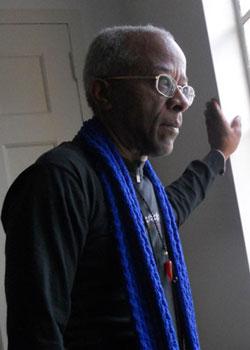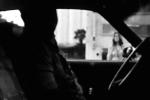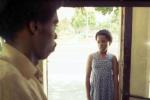You are here
Thomas Penick

Thomas Penick was a writer and film editor. Born in Washington, D.C. and raised in Cleveland, Ohio, Penick attended UCLA to study screenwriting and received his B.A. in Theater Arts/Motion Pictures in 1971. He directed the short, 69 Pickup (1969), for his UCLA Project One film. Penick befriended and worked alongside directors and fellow UCLA students Jamaa Fanaka and Charles Burnett, serving as production manager and editor on My Brother’s Wedding (1983).
Penick’s first role in the motion picture industry was as assistant film editor on Lady Sings the Blues (1972), starring Diana Ross. Penick went on to work under Oscar-winning editor Michael Kahn on the TV pilot “Fuzz Brothers” (1973), and the feature films, The Spook Who Sat by the Door (1973) and Nightmare Circus (1974). His work for Paramount Pictures included serving as an assistant editor on the Gordon Parks film, Leadbelly (1976). Penick also worked as an assistant film editor on a variety of television series and trailers for MGM, including the miniseries, “George Washington” (1984). At Warner Bros., Penick was an assistant editor on Ken Russell’s Altered States (1981).
Penick was a poet and contributed to numerous newsletters. In 2001, he published “YES … 1st Book of Poetry.” He passed away in March 2016.
Filmography
| Film | Role(s) | Year | |
|---|---|---|---|
 |
69 Pickup Filmmaker Thomas Penick explores race, gender and violence in this provocative, disturbing drama set on a hot, summer day in 1969. When a woman accepts a ride from two men at the corner of Western and Adams, the encounter quickly turns ugly, venturing into painful, surreal territory. |
Director Producer Writer |
1969 |
 |
My Brother's Wedding Laid off from his factory job, Pierce (Silas) marks time working at his family’s dry cleaning store, swapping loaded jabs with his brother’s upper middle-class fiancé and hanging out with his best friend, recently released from prison. Director Charles Burnett fleshes out Pierce’s sense of suspension with richly observed detail, the revelation of character bound to the revelation of an African American community, itself at a crossroads. |
Editor | 1983 |
To report problems, broken links, or comment on the website, please contact support
Copyright © 2025 UCLA Film & Television Archive. All Rights Reserved






 Mobile Navigation
Mobile Navigation

